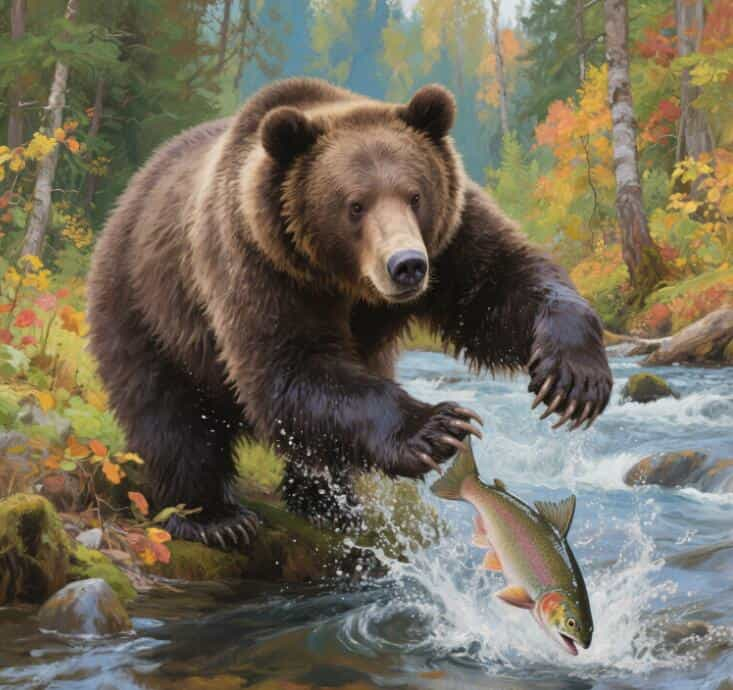In our quest to understand intelligence, we often overlook the remarkable cognitive abilities of animals. From problem-solving crows to emotionally complex elephants, the animal kingdom is full of unsung geniuses that challenge our assumptions about consciousness, creativity, and even morality. Here’s why we should pay closer attention to the brilliant minds sharing our planet.
1. Toolmakers and Innovators
Animals don’t need laboratories to demonstrate ingenuity:
• New Caledonian crows craft hooked tools from twigs to extract insects—a skill once thought unique to humans.
• Octopuses solve complex puzzles, unscrew jars, and even use coconut shells as portable armor.
• Chimpanzees sharpen sticks to hunt bushbabies, showing foresight and planning.
• Dolphins use sea sponges as protective “gloves” while foraging on rough ocean floors.
Mind-Blowing Fact: In Japan, carrion crows drop nuts on crosswalks, wait for cars to crack them open, then retrieve their snack when the light turns red—demonstrating an understanding of traffic patterns.
2. Emotional Intelligence: More Than Instinct
Science confirms that animals experience deep emotions:
• Elephants mourn their dead, touching bones with their trunks and standing vigil for days.
• Rats giggle when tickled (at ultrasonic frequencies) and will free trapped companions before eating chocolate.
• Sheep recognize up to 50 individual faces and show stress when separated from friends.
• Dogs experience genuine joy when reunited with loved ones (MRI scans prove it’s not just about food).
Heartbreaking Reality: Orca mothers have been observed carrying dead calves for weeks, a behavior so persistent it threatens their own survival.
3. Complex Societies and Cultural Traditions
Animal communities rival human civilizations in sophistication:
• Meerkats run “schools” where adults teach pups to safely handle venomous scorpions.
• Vampire bats form lifelong friendships, sharing blood meals with those who had a bad hunting night.
• Prairie dogs have a language sophisticated enough to describe intruders’ size, color, and clothing.
• Humpback whales coordinate bubble-net fishing across miles using synchronized songs.
Office Comparison: While humans struggle with teamwork, ants demonstrate flawless democratic decision-making when relocating nests.
4. Unexpected Friendships Across Species
Nature’s odd couples prove compassion knows no boundaries:
• A lioness in Kenya adopted six oryx calves over several years, protecting them from predators.
• Koko the gorilla cared for a kitten as her own, signing “soft good cat” while cradling it.
• A wild dolphin in New Zealand regularly plays with swimmers, even retrieving lost goggles.
• Service dogs can detect seizures, diabetic crashes, and even cancer before medical equipment does.
5. Life Lessons from the Animal Kingdom
What animals teach us without words:
✅ Mindfulness: A cat’s laser-like focus on a floating leaf.
✅ Resilience: Monarch butterflies navigating 3,000-mile migrations.
✅ Teamwork: Wolves taking turns leading their pack to conserve energy.
✅ Adaptability: Urban foxes thriving by raiding our takeout containers.
Human Failing: While we invented alarm clocks, roosters naturally adjust their crowing to artificial light—proving they understand time better than we do.
6. Conservation Challenges We Must Face
Uncomfortable truths about human-animal coexistence:
⚠️ “Cute” species get 90% of conservation funding, while uncharismatic creatures like bats face extinction.
⚠️ Zoos preserve species but often fail to meet animals’ psychological needs.
⚠️ Climate change forces polar bears to swim impossible distances as ice melts.
⚠️ The pet trade exploits intelligent species like parrots (whose cognitive skills rival primates).
7. How to Honor Animal Intelligence Daily
Simple but powerful actions:
• For Birds: Apply window decals to prevent collisions (1 billion birds die this way annually).
• For Marine Life: Choose reef-safe sunscreen and reduce plastic use.
• For Wildlife: Keep cats indoors (they kill 2.4 billion birds yearly in the U.S. alone).
• For Farm Animals: Support cage-free egg producers.
Pro Tip: Plant native flowers to feed pollinators—bees can recognize human faces and remember them for days!
The Humbling Truth
As we test animal intelligence against human benchmarks, we’re realizing:
• An octopus’s distributed brain (with neurons in its arms) may process information more efficiently than our centralized one.
• Elephants likely grasp mortality—they carefully bury their dead.
• Pigs outperform 3-year-old humans in video game tests.
Perhaps the question isn’t “How smart are animals?” but “Why did we ever think they weren’t?”
Next time you see a crow studying you from a fence post, remember: You’re being assessed by a creature that makes tools, plans for the future, and teaches its young. The true measure of our intelligence may be how well we learn to coexist with theirs.
Final Thought: As primatologist Frans de Waal noted, “We’re not the only conscious beings on this planet—we’re just the ones who talk about it the most.”
